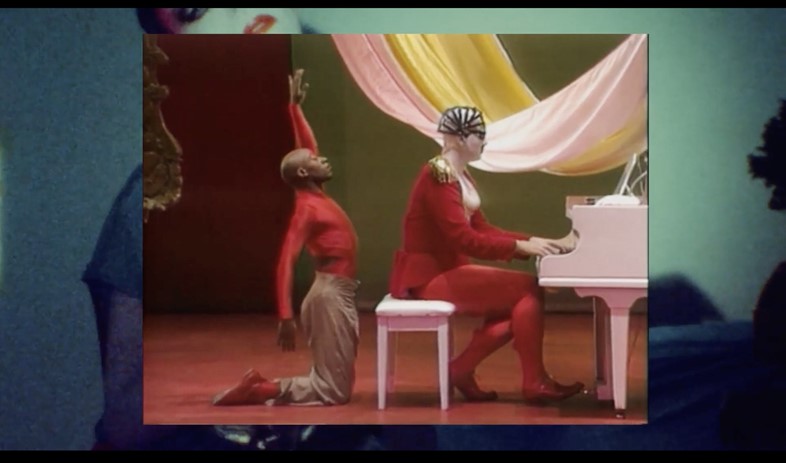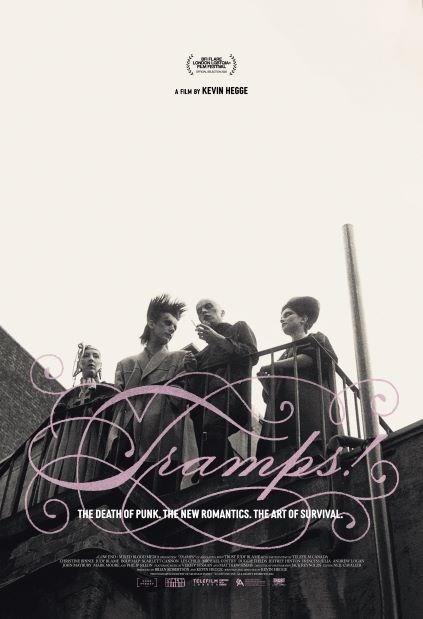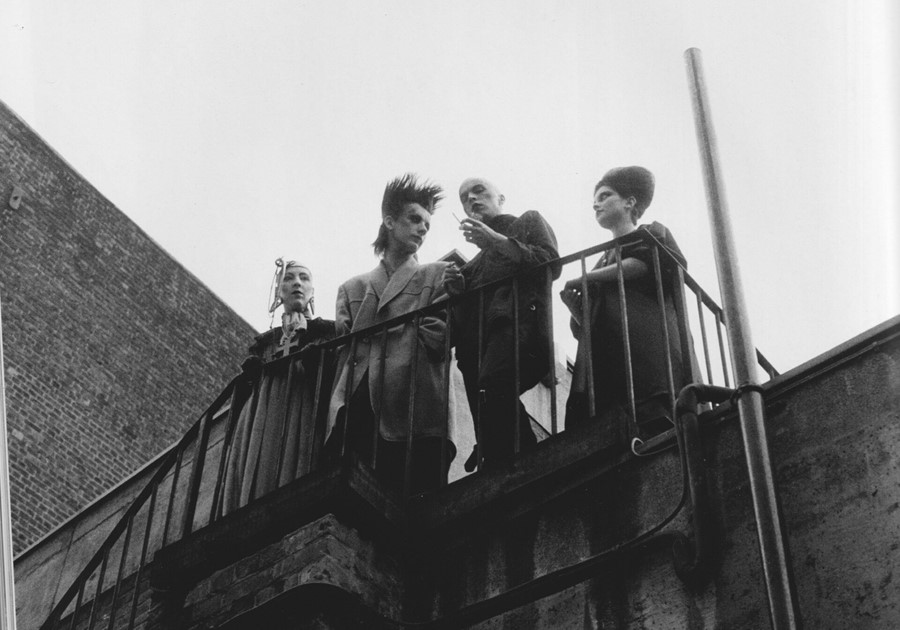The filmmaker’s new documentary is a forward-looking retrospective of the British movement from the perspective of some of its most influential artists
“I don’t give a shit about the New Romantics,” says the Toronto-based filmmaker Kevin Hegge, who has spent the last decade of his life working on a feature-length documentary about ... the New Romantics. What he means is that he doesn’t care for the common tropes that people fall back on when talking about the movement that emerged out of London’s nightclub scene in the late 1970s and 1980s – the drag-adjacent make-up, the flamboyant style, the blurring of gender boundaries. “For me, it was about zoning in on artists,” he says. “How can I translate the people, the emotional content, and the gravity of this era that’s really just about aesthetics?”
Hegge first envisioned Tramps – an ongoing, feature-length documentary that follows how the New Romantics rose from the ashes of punk in Thatcher’s Britain – back in 2013, when his debut film She Said Boom was screened at the BFI Flare film festival. At the festival, he met Jeffrey Hinton, the former DJ at Leigh Bowery’s Taboo, who took him out for drinks where he was rubbing shoulders with legendary figures like Princess Julia. Already an “obsessive” fan of Bowery and Michael Clark, and a self-confessed anglophile, Hegge had a pre-existing love for the ins and outs of the subculture, stoked by experimental films like Charles Atlas’ Hail the New Puritan, but he was surprised to find that many of the same artists were still active on the club scene. “It just felt like these mythical people weren’t unreachable,” he recalls. “Everyone was just hanging out.”
Luckily, many of them also liked to gossip. Over subsequent years, this helped Hegge to compile the oral history of the pioneering art, fashion, and music scene that we see in Tramps, via intimate interviews with some of its biggest players, including John Maybury, Duggie Fields, BodyMap founders Stevie Stewart and David Holah, Scarlett Cannon, and the late, great Judy Blame. The result is a film that documents the birth of the New Romantic scene in clubs such as The Blitz and “free” accommodation like the Warren Street squat, while resisting the urge to focus on big names like Boy George or Spandau Ballet – “all the stuff that was absorbed into heterosexual, mainstream, dominant culture”.

“[Tramps] is about diversifying this mythology, making it tangible and finding the people behind these mythological works of art,” says Hegge. “Because everything about that era is about performance and presentation, I really wanted to find the reality of it. Like, they were just kids who were on speed and didn’t have any money and wanted to go to the club and make out, but they couldn’t make out because they had too much makeup on – the clunkier personal bits.”
Gossip or no gossip, compiling this personal history was no easy feat. Hegge says he emailed and called hundreds of people, and even went around London knocking on people’s doors during research trips from Canada. “Many of the people in this movie would easily be able to get a restraining order against me,” he jokes. “Everyone was fucking elusive and hard to track down. It was a daily quest, and completely sleepless. I didn’t have any money really, I was in a different city, and I’d become fully obsessed with everyone in the movie.” He said he’d turned into a “weird documentary vampire” stalking the streets of London.
Even now, the documentary isn’t technically complete, despite the fact early cuts showed at film festivals in London and Toronto, and the latest will screen in London on January 27. All the time, Hegge says, new footage from the period is being unearthed by those that were there to witness the New Romantics firsthand, offering new perspectives and higher-quality insights: “Sometimes, I think, ‘Fuck, am I going to be doing Tramps for the rest of my life?’”
In a way, this ongoing chronicle feels appropriate for Tramps. The film is an evocative document of a tribe that could only have emerged in 80s Britain, where glamour clashed with the gritty reality of postwar bomb sites, and free arts education fostered creative risk-taking, but its gaze isn’t fixed on the past or distorted by rose-coloured glasses. Key figures from the iconic club promoter Philip Sallon to Christine Binnie – whose nude, anarchic performances with the Neo Naturists provided a counterpoint to the dressed-up glitz of the Blitz Kids – remain just as interesting, and interested in what’s going on today, decades later. It’s an optimistic portrait, underscored by a heavy, anti-nostalgic soundtrack from Electrelane’s Verity Susman and Wire’s Matt Simms.

“There’s this perception of older generations that’s so weird,” says Hegge. “People talk about punk and youth culture, but the person that was there was a punk, and so they’re still a punk [today]. It’s in their biological makeup. It’s not like you turn 40 and all of a sudden you just wear beige and all you fucking care about is, like, eating oatmeal.”
Today’s young artists are growing up in very different conditions to the New Romantics, of course. Students leave university with debt in the tens of thousands, jobs are scarce and rents are high, and cities have morphed into an increasingly hostile environment for venues like The Blitz, or boundary-pushing club nights like Michael and Gerlinde Kostiff’s Kinky Gerlinky. “[It’s a] precarious lifestyle that strangles out the possibility of any creative output,” says Hegge. “You can’t create if you can’t even fucking eat.” Nevertheless, the New Romantics’ enduring punk spirit is a source of inspiration for today’s creatives, and for Hegge himself. “I was working on this for so long,” he says of Tramps, which was filmed between stints at record shops and bars. “I cared so much about making this movie, but I was also filled with dread. I was like, ‘Why am I doing this?’ Then I’d see Julia and Jeffrey and Judy – all these people who hadn’t lost interest and were still very active.”
This inspired a common thread that runs through Hegge’s interviews: “Did you ever want to give up? How did you stay in this creative lifestyle? How did you survive? How are you not ruled by fear?” In part, these questions get to the root of artists’ lived realities at the peak of a movement that’s often unfairly written off as all style and no substance. In part, Hegge says: “It was just self-help ... really expensive therapy.”
Kevin Hegge and Jason Solomons will be doing a Q&A at the Groucho Club in London on January 27. Head here for tickets.
